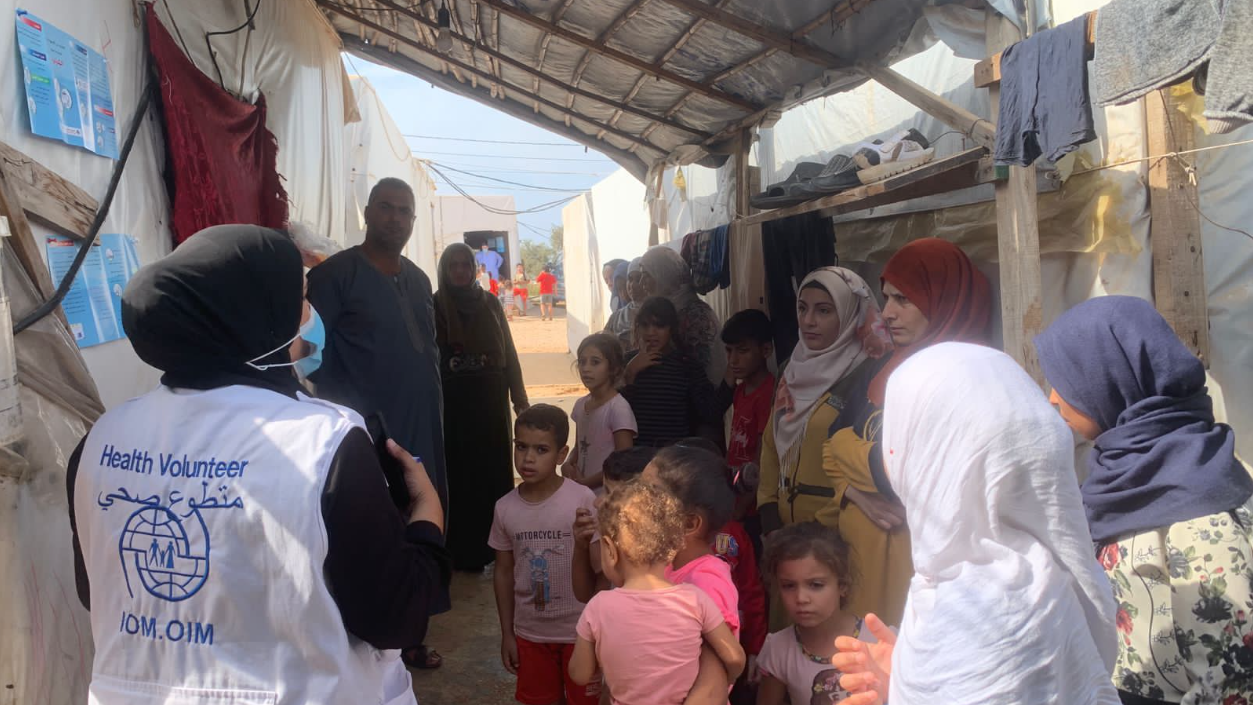Five people have died and at least 220 have fallen sick, as of October 20, in a cholera outbreak in Lebanon. The first cases were reported at the beginning of the month among refugees living in the north of the country. Dr. Firas Abiad, Minister of Public Health, warned that the outbreak was spreading quickly, endangering people living in refugee camps and those in precarious living conditions in the rest of the country.
Cholera is contracted by consuming contaminated water and food, meaning that it is most easily spread where social determinants of health — non-medical factors that influence health outcomes — are collapsing. More than 1.5 million refugees currently live in Lebanon, many of whom reside in camps with notoriously bad living conditions, where clean water, safe food, and sanitation facilities are limited. Poor families outside the camps struggle to access the same basic necessities. In the context of Lebanon’s ongoing social and economic crises, this means that thousands of people are potentially exposed to the danger of contracting cholera.
This is the first cholera outbreak in Lebanon since 1993. Yet, as Mohammad Alzayed, Health Coordinator at Amel Association International, notes, this should not come as a surprise. “After years of facing multiple crises that severely affected the living conditions in Lebanon, it is not a surprise to start getting cases of diseases we thought are long gone,” he says.
The crises that Alzayed refers to have not only devastated the social determinants of health, but they have also weakened the health system. The World Health Organization (WHO) itself expressed concern for the stability of Lebanese healthcare on October 19. Cholera cases can be treated, but, to do that, functional health resources have to exist. If this is not the case, cholera can lead to the death and the suffering of thousands of people. This happened in neighboring Syria, where a cholera outbreak declared at the end of August left 75 people dead and approximately 20,000 unwell.
While health systems play a crucial role in providing care to those who fall sick, the disease is primarily linked to living conditions. Mohammad Alzayed said, “Although cholera is a health condition, the main response to the outbreak [lies] elsewhere. The consecutive crises [have] severely hindered access to clean and safe water for the most vulnerable populations. The state has to step up to its responsibilities and provide the needed support for the water establishment to meet the minimum international standards.”
“It has to be understood that this outbreak is not a ‘refugees’ disease, this is a ‘vulnerable people who have no access to clean and safe water’ disease,” said Alzayed.
Worries about vaccine supplies as cases worldwide grow
Cholera cases have been on the rise worldwide in 2022. By mid-October, cases of cholera had been registered in 29 countries. Besides Lebanon and Syria, outbreaks are ongoing in Haiti, Malawi, and Ethiopia.
Improving the social determinants of health and strengthening health systems can take years in the best of cases, so countries facing cholera outbreaks continue to rely on vaccines as a short-term alleviation method. Yet, as the overall number of cases has been on the rise, the WHO has expressed worries about vaccine supply.
On October 19, the United Nations health agency also temporarily changed its strategy for cholera vaccination, recommending the use of one dose of the vaccine as opposed to two, to ensure that vaccines could be available to more people. The WHO announcement came approximately a week after an announcement by Sanofi-affiliated Shantha Biotechnics that they would cease the production of the cholera vaccine Shanchol by the end of 2022.
Dr. Tedros Adhanom Ghebreyesus, Director General of the WHO, said during a press conference that the one-dose strategy had proven helpful on previous occasions. “However, this is clearly less than ideal and rationing must only be a temporary solution. In the long-term we need a plan to scale up vaccine production as part of a holistic strategy to prevent and stop cholera outbreaks. In addition, the best way to prevent cholera outbreaks is to ensure people have access to safe water and sanitation,” he said to the press.
People’s Health Dispatch is a fortnightly bulletin published by the People’s Health Movement and Peoples Dispatch. For more articles and subscription to People’s Health Dispatch, click here.





